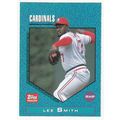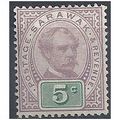Devizes Bear Hotel & Corn Exchange 70s Salmon old cars
- Condition : Used
- Dispatch : 2 Days
- Brand : None
- ID# : 32351604
- Quantity : 1 item
- Views : 814
- Location : United Kingdom

- Seller : justthebook (+1703)
- Barcode : None
- Start : Sun 10 Oct 2010 21:05:34 (BST)
- Close : Run Until Sold
- Remain : Run Until Sold
More Listings from This Seller view all
Seller's Description
- Postcard
- Picture / Image: Bear Hotel & Corn Exchnage, Devizes
- Publisher: Salmon (1-55-07-01E)
- Postally used: no
- Stamp: n/a
- Postmark(s): n/a
- Sent to: n/a
- Notes & Key words:
------------------------------------------------
Postage & Packing:
UK (incl. IOM, CI & BFPO): 99p
Europe: £1.60
Rest of world (inc. USA etc): £2.75
No additional charges for more than one postcard. You can buy as many postcards from me as you like and you will just pay the fee above once. (If buying postcards with other things such as books, please contact or wait for invoice before paying).
Payment Methods:
UK - PayPal, Cheque (from UK bank) or postal order
Outside UK: PayPal or Google Checkout ONLY please. NO non-UK currency checks or money orders (sorry).
NOTE: All postcards are sent in brand new stiffened envelopes which I have bought for the task. These are specially made to protect postcards and you may be able to re-use them. In addition there are other costs to sending so the above charge is not just for the stamp!
----------------------------------------------
Text from the free encyclopedia WIKIPEDIA may appear below to give a little background information:
*************
Devizes is a small market town and civil parish in the English county of Wiltshire, in the southern United Kingdom.
Devizes Castle was built by Osmund, Bishop of Salisbury in 1080 but the town is not mentioned in the Domesday Book. Because the castle was located on the boundaries of the manors of Rowde, Bishops Cannings and Potterne it became known as the castrum ad divisas or "the castle at the boundaries", hence the name Devizes. The original motte and bailey castle was probably a wood and earth construction, but this burnt down in 1113 and was rebuilt in stone by Roger of Salisbury, Osmund's successor. Devizes received its first charter in 1141 permitting regular markets. The castle changed hands several times during the civil war between Stephen of Blois and Matilda in the 12th century. The castle held important prisoners, including Robert Curthose, eldest son of William the Conqueror in 1106. Robert was kept in Devizes for 20 years, before being moved to Cardiff Castle.
The town has three Church of England parish churches. They are dedicated to St. John, St. James and St. Peter. The last is an Anglo-Catholic church. There are also Methodist, Quaker, Roman Catholic, Assemblies of God, and Baptist churches in Devizes.
During the 12th and 13th centuries the town of Devizes developed outside the castle with craftsmen and traders setting up businesses to serve the residents of the castle. The first known market in Devizes was in 1228. The original market was in the large space outside St Mary’s Church, rather than in the current Market Place, which at that time would have been within the castle’s outer bailey.[1] The chief products in the 16th and early 17th centuries were wheat, wool and yarn, with cheese, bacon and butter increasing in importance later.
1643, during the English Civil War Parliamentary forces under Sir William Waller besieged Royalist forces under Sir Ralph Hopton in Devizes. However the siege was lifted by a relief force from Oxford under Henry Wilmot, 1st Earl of Rochester and Waller's forces were almost totally destroyed at the Battle of Roundway Down. Devizes remained under Royalist control until 1645 when Oliver Cromwell attacked and forced the Royalists to surrender. The castle was destroyed in 1648 on the orders of Parliament, a process known as slighting, and today little remains of it.
From the 16th century Devizes became known for its textiles, initially white woollen broadcloth but later the manufacture of serge, drugget, felt and cassimere or Zephyr cloth. In the early 18th century Devizes held the largest corn market in the West Country of England and also traded hops, cattle, horses and various cloth. Before the Corn Exchange was built in 1857 the trade in wheat and barley was conducted in the open, with sacks piled up around the market cross.[2] Today's cross displays the salutary tale of Ruth Pierce, accused of cheating some buyers at the market:[3]
On Thursday, 25th January, 1753, Ruth Pierce of Potterne in this county, agreed with three other women to buy a sack of wheat in the Market, each paying her due proportion towards the same. One of these women, in collecting the several quotas of money, discovered a deficiency, and demanded of Ruth Pierce the sum which was wanting to make good the amount. Ruth Pierce protested that she had paid her share, and said: ' She wished she might drop down dead if she had not.' She rashly repeated this awful wish, when to the consternation and terror of the surrounding multitude, she instantly fell down and expired, having the money conƒealed in her hand.
The coroner, John Clare, recorded that she had been "struck down dead by the vengeance of God."[4]
Wool merchants were able to build prosperous town houses in St. John's and Long Street and around the market place [1]. From the end of the 18th century the manufacture of textiles declined, but other trades in the town included clock making, a bell foundry, booksellers, milliners, grocers and silversmiths. In the 18th century brewing, curing of tobacco and the manufacture of snuff were established in the town. Brewing still survives in the Wadworth Brewery [2], but the tobacco and snuff trades have now died out.
The town was a coaching stop for Mail coaches and stagecoaches on the road from London to Bristol, as evidenced by the number of coaching inns in the town, especially the Bear Hotel [3].
Listing Information
| Listing Type | Gallery Listing |
| Listing ID# | 32351604 |
| Start Time | Sun 10 Oct 2010 21:05:34 (BST) |
| Close Time | Run Until Sold |
| Starting Bid | Fixed Price (no bidding) |
| Item Condition | Used |
| Bids | 0 |
| Views | 814 |
| Dispatch Time | 2 Days |
| Quantity | 1 |
| Location | United Kingdom |
| Auto Extend | No |



 for 1 item(s)
for 1 item(s)














